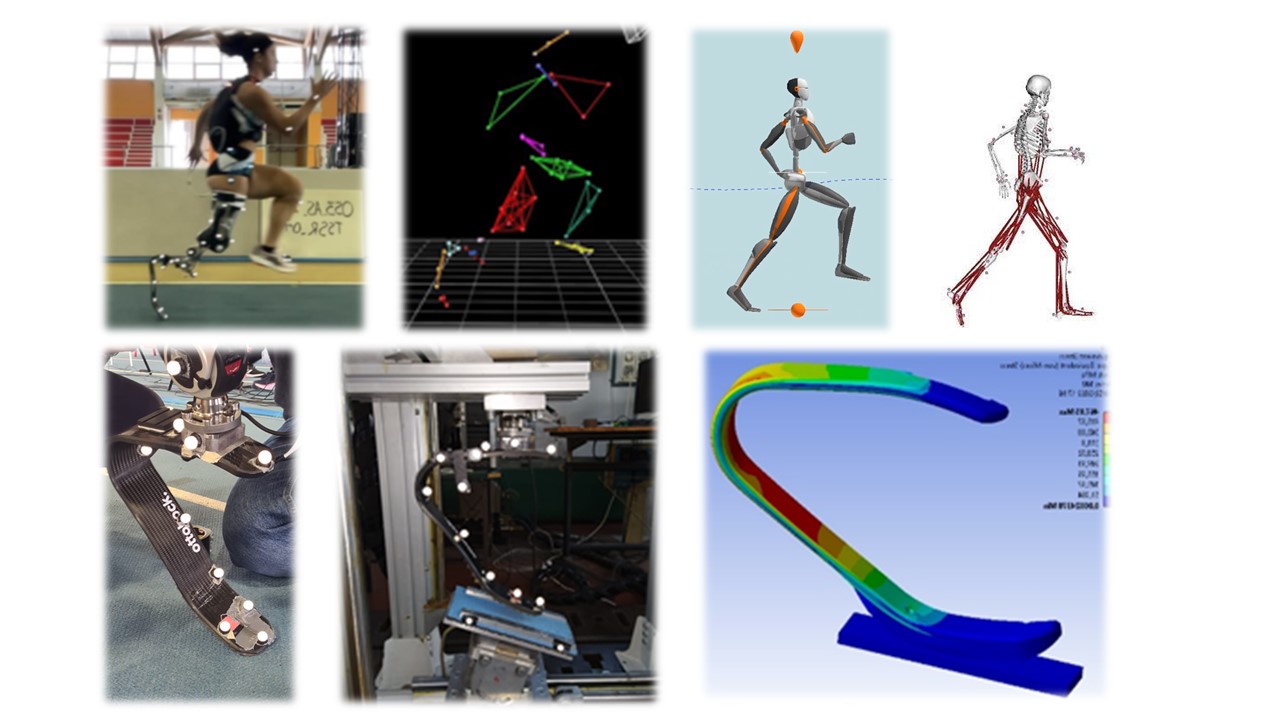
COURSE ENROLMENT
Students from Mechanical Engineering, Bioengineering, Material Engineering and ICT will be Auto Enrolled if they enter the course.
In any case, the password to Enrol the course is
23_SERD_23 for all other courses & students
Aim of the course is to present methods and tools for approaching the study of sports equipment and rehabilitation devices by means of theoretical lectures, applied workshops and practical experiences during virtual or physical Laboratory sessions.
Using the basic knowledge of applied mechanics, mechanics of materials, instrumentation and measurement courses, students from different engineering background should enhance their essential knowledge of functional anatomy and physiology of the musculoskeletal system and adopt an integrated approach to the study of functionality, comfort and safety properties of sport equipment or rehabilitation devices. Sports equipment & garment/protections, as well as orthoses/prostheses/assistive and wearable technologies shall be studied for the development of innovative solutions or for their assessment by the introduction of comparative tests.
The course proposes the development of two OPTIONAL group activity: (i) a Creative Design Challenge, carried within a week time by groups of 3/5 students, focused on the identification/development/presentation of an innovative product concept; (ii) a COURSE GROUP PROJECT (3/5 students) oriented to the study of sport equipment, assistive products or biomedical device/sensor/software, adopting either an experimental, a numerical or a product innovation concept approach during about a month timespan with an assigned tutor (end of April-early June).
COURSE ORGANIZATION
Lectures will be delivered in person.
Students are invited to take part to lectures in person, as the Course implies several interactive discussions and practical examples, as well as this favors interactions among students of different background.
Some lectures or workshops will be recorded and made available to students in the day after the lecture.
Students from Mechanical Engineering, Bioengineering, Material Engineering and ICT will be Auto Enrolled if they enter the course.
In any case, the password to Enrol the course is
23_SERD_23 for all other courses & students
Aim of the course is to present methods and tools for approaching the study of sports equipment and rehabilitation devices by means of theoretical lectures, applied workshops and practical experiences during virtual or physical Laboratory sessions.
Using the basic knowledge of applied mechanics, mechanics of materials, instrumentation and measurement courses, students from different engineering background should enhance their essential knowledge of functional anatomy and physiology of the musculoskeletal system and adopt an integrated approach to the study of functionality, comfort and safety properties of sport equipment or rehabilitation devices. Sports equipment & garment/protections, as well as orthoses/prostheses/assistive and wearable technologies shall be studied for the development of innovative solutions or for their assessment by the introduction of comparative tests.
The course proposes the development of two OPTIONAL group activity: (i) a Creative Design Challenge, carried within a week time by groups of 3/5 students, focused on the identification/development/presentation of an innovative product concept; (ii) a COURSE GROUP PROJECT (3/5 students) oriented to the study of sport equipment, assistive products or biomedical device/sensor/software, adopting either an experimental, a numerical or a product innovation concept approach during about a month timespan with an assigned tutor (end of April-early June).
COURSE ORGANIZATION
Lectures will be delivered in person.
Students are invited to take part to lectures in person, as the Course implies several interactive discussions and practical examples, as well as this favors interactions among students of different background.
Some lectures or workshops will be recorded and made available to students in the day after the lecture.
- Teacher: Nicola Petrone
